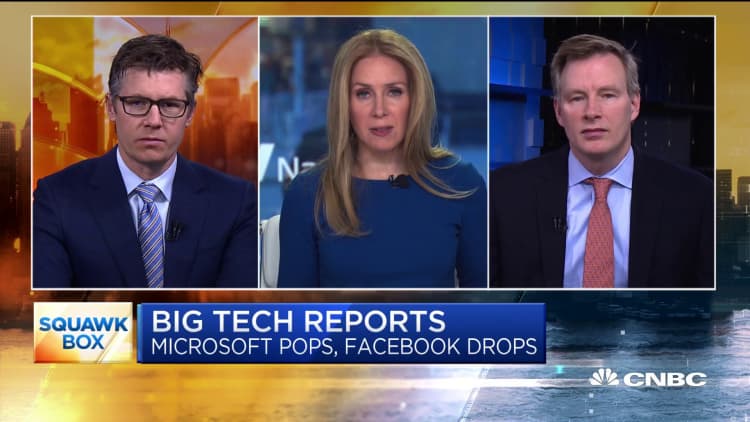
Stocks closed higher on Thursday after a sharp comeback late in the session erased earlier losses stemming from concerns around the coronavirus.
The Dow Jones Industrial Average gained 124 points, or 0.4%. At its low of the day, the Dow was down 244 points. The S&P 500 ended the day up 0.3%. The Nasdaq Composite also gained 0.3%.
The major averages started paring losses with roughly one hour to go after the World Health Organization declared a global health emergency, but at the same time, did not recommend travel to China be restricted and said the country had the situation under control.
Airline stocks also rebounded, with American and United each closing more than 3% higher. Las Vegas Sands and Wynn Resorts, two coronavirus proxies for their gaming exposure in Macao, ended the day up more than 2% each.
Stocks were down for most of the session as the death toll in China from the coronavirus hit 171, with confirmed cases of the virus surpassing 8,000. The Centers for Disease Control and Prevention later confirmed the first human-to-human transmission of the virus in the U.S., pushing the major indexes back towards their session lows.
"The spread of the Wuhan virus isn't accelerating, but markets becoming more concerned about future earnings and economic growth as companies implement work stoppages to reduce the chance of the disease spreading," said Tom Essaye, founder of The Sevens Report.
Microsoft led the Dow higher with a 2.8% gain after the tech giant reported better-than-expected quarterly results. That rise pushed the S&P 500 into record territory, advancing 0.9%.
Still, concerns over the coronavirus and how it will impact remain. Investors increased their exposure to bonds, briefly pushing the 10-year Treasury yield below its 3-month counterpart, triggering a so-called inversion. Traders worry when the yield curve inverts because, in the past, this event has preceded recessionary periods.
"This tells us that investors are reconsidering, at least in the near term, how they feel about the growth prospects of this country. And not just that, but global GDP," said Yousef Abbasi, director of U.S. institutional equities at INTL FCStone. "So with that in mind, the question becomes, how can you justify paying a multiple of 18.5 times earnings, when the bond market is kind of telling you that growth prospects are starting to diminish or potentially be impacted in a negative way?"
Stocks have been mired all week by fears over the coronavirus and its toll on the global economy. The S&P 500 and Dow are both down about 0.4% for the week while the Nasdaq has lost 0.2%. The Dow and S&P 500 were on pace for their first back-to-back weekly declines since a three-week slide that ended in early October. The Nasdaq has not logged in consecutive weekly declines since late September.
in corporate news, Facebook reported quarterly results that showed a sharp rise in expenses and narrowing margins. Facebook shares fell more than 6%.Tesla enjoyed a second consecutive quarterly profit on record vehicle deliveries and vowed to produce over 500,000 units this year, sending the stock surging by 10.3%.
About 200 S&P 500 companies have reported quarterly earnings thus far, with 70% of them posting better-than-expected profits, FactSet data shows.
—CNBC's Elliot Smith contributed to this report.


